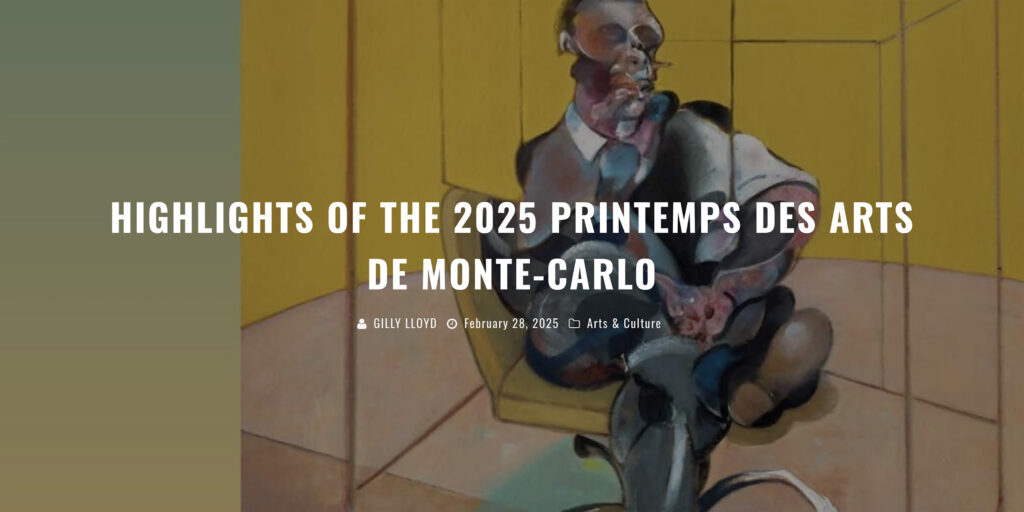
Poster courtesy of Printemps des Arts de Monte-Carlo
This year, Monte-Carlo’s Printemps des Arts festival pays tribute to French composer, conductor and essayist Pierre Boulez. The festival was created in 1970 on the initiative of Princess Grace of Monaco, and has been presided over by HRH the Princess of Hanover since 1984. Under the direction of Bruno Mantovani, French composer and director of the Conservatoire de Paris, the festival takes place in the Principality from 2nd March to 27th April.
Pierre Boulez is regarded as the most significant French composer of his generation, and a leading figure in the avant-garde of the 20th century. From his first post with the Southwest Radio Symphony Orchestra in Baden-Baden in 1958, he has served as principal guest conductor, then musical advisor, of the Cleveland Orchestra, principal conductor of both the BBC Symphony Orchestra and the New York Philharmonic, conducted works of Richard Wagner at the Bayreuth Festival, and has led major orchestras in the United States and Europe. These include the Chicago Symphony, and the Vienna, Berlin and Los Angeles philharmonics. Boulez was well known for his interpretations of the works of Schoenberg, Alban Berg, Anton Webern, Maurice Ravel and Igor Stravinsky, and American composer John Adams says: “The precision of his performances and his recordings had a huge effect on following generations of conductors and performers.”
The first concert of the festival bears the title Prelude – Opera Night, in which the Monte-Carlo Philharmonic Orchestra is led by Philippe Jordan, and plays works which were particular favourites of Boulez – the Adagio from Mahler’s Symphony No 10, and what is billed as “the most revolutionary act in the history of 19th century opera”, the second act of Wagner’s Tristan and Isolde. This work features tenor Andreas Schafer and soprano Anja Kampe in the title roles, with bass Georg Zeppenfeld as King Mark and mezzo-soprano Ekaterina Gubanova as Brangäne.
The Monte-Carlo Philharmonic appears in three further concerts – all part of the Orchestra’s season – the first of which is led by Jukka-Pekka Saraste, and features the music of Wagner and Bruckner – the Prelude to Act 1 of Wagner’s Parsifal and the Symphony No 8 in C minor (Haas version) WAB 108 by Bruckner.
This is followed on March 30th by a performance of the music of Ravel, in which the orchestra is led by Music Director Kazuki Yamada, playing the Pavane pour une infante défunte, the Piano Concerto in G major, Une barque sur l’océan from Miroirs – the five-movement Suite for Solo Piano – and the Piano Concerto for the Left Hand. The soloist in these two concertos is Nelson Goerner, described by Gramophone magazine as “…. not only a musician who thinks deeply about his art, but an enthusiast who retains his love of his instrument, its repertoire and its exponents”.
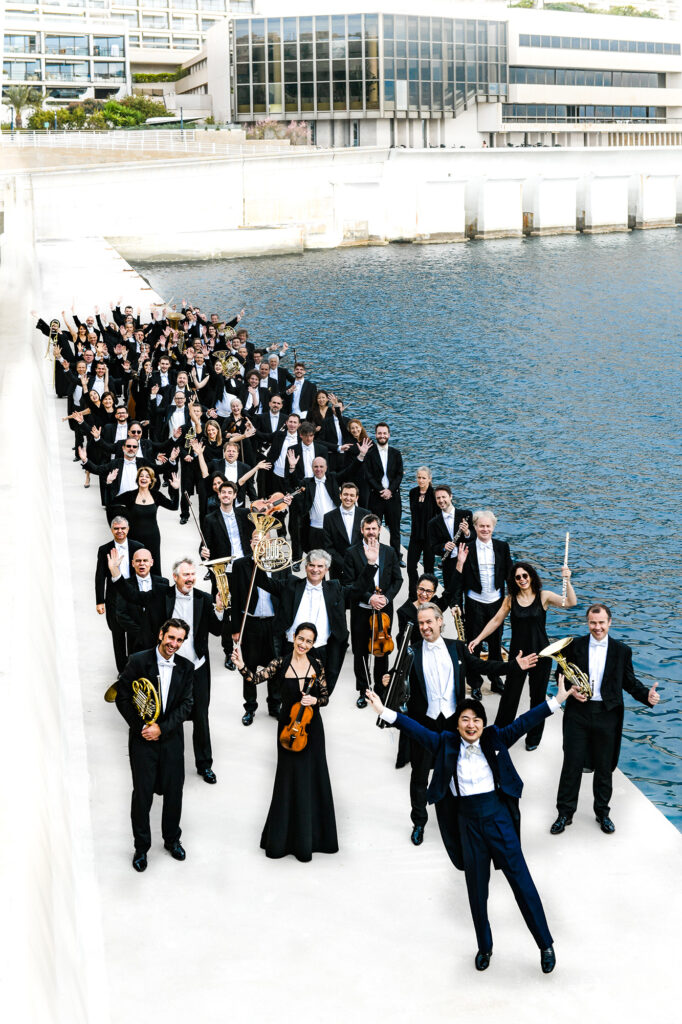
The Monte-Carlo Philharmonic Orchestra © Sasha Gusov
The final appearance by the Monte-Carlo Philharmonic features the music of the late Peter Eötvös – his zeroPoints – which is followed by Béla Bartók’s Violin Concerto No 2 Sz 112. The soloist is Ukrainian violinist Valeriy Sokolov, winner of the 2024 George Enescu International Violin Competition in Bucharest, and Alexandre Scriabine’s Symphony No 4, The Poem of Ecstasy Op 54. The concert is led by German conductor Elias Grandy, one of the up-and-coming German conductors who have made make a name for themselves internationally, and who has been praised by the press as “passionate and spirited”.
There are two concerts by the BBC Symphony Orchestra, featuring music by Stravinsky, Bartók, Schoenberg and Debussy. Both are led by French conductor Pascal Rophé, currently Music Director of the Orchestre National des Pays de la Loire, and regarded not only as one of the foremost interpreters of 20th century music, but also known for his appreciation of the symphonic repertoire of the 18th and 19th centuries.
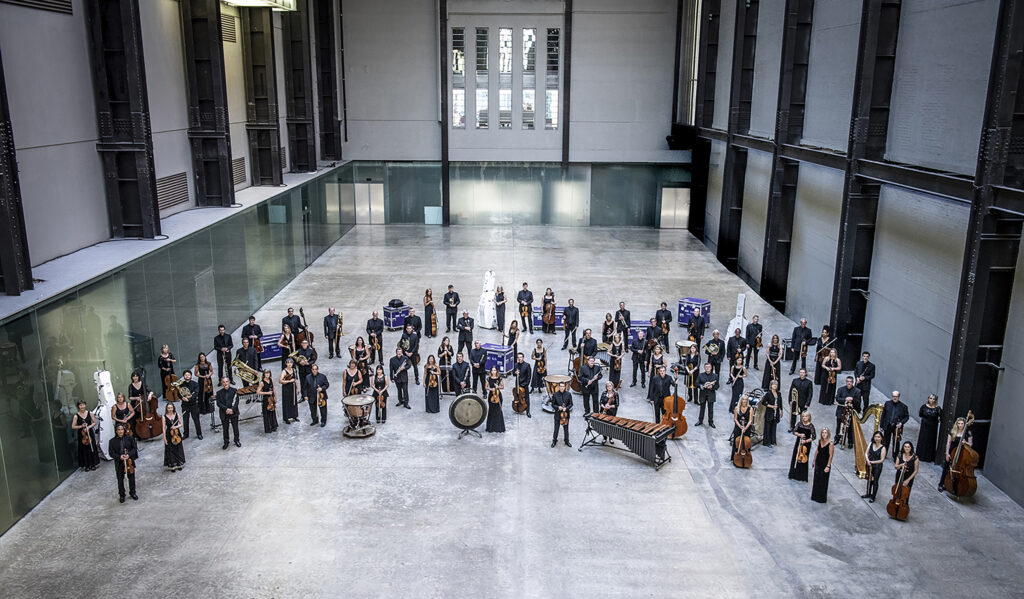
The BBC Symphony Orchestra © BBC & Sim Canetty-Clarke
In the first concert, the Orchestra plays Stravinsky’s Agon, Bartók’s Piano Concerto No 2 Sz 95 and Schoenberg’s Variations for Orchestra Op 31. The soloist is French pianist François-Frédéric Guy, described in a review by The Times as having “…. made mesmerising colours, erupting into shivery cascades and subterranean rumbles, a magician with sound”. He has appeared with orchestras such as the Wiener Symphoniker, the Orchestre Symphonique de Montréal, the Orchestre Philharmonique de Radio France, the NHK Symphony Orchestra in Tokyo and the Philharmonia Orchestra in London, performs works by a number of contemporary composers, and regularly performs world premieres.
In the second concert, François-Frédéric Guy plays Schoenberg’s Piano Concerto, Op 42, in a programme which opens with Debussy’s ‘poème dansé, Jeux, and closes with Stravinsky’s Symphony in Three Movements.
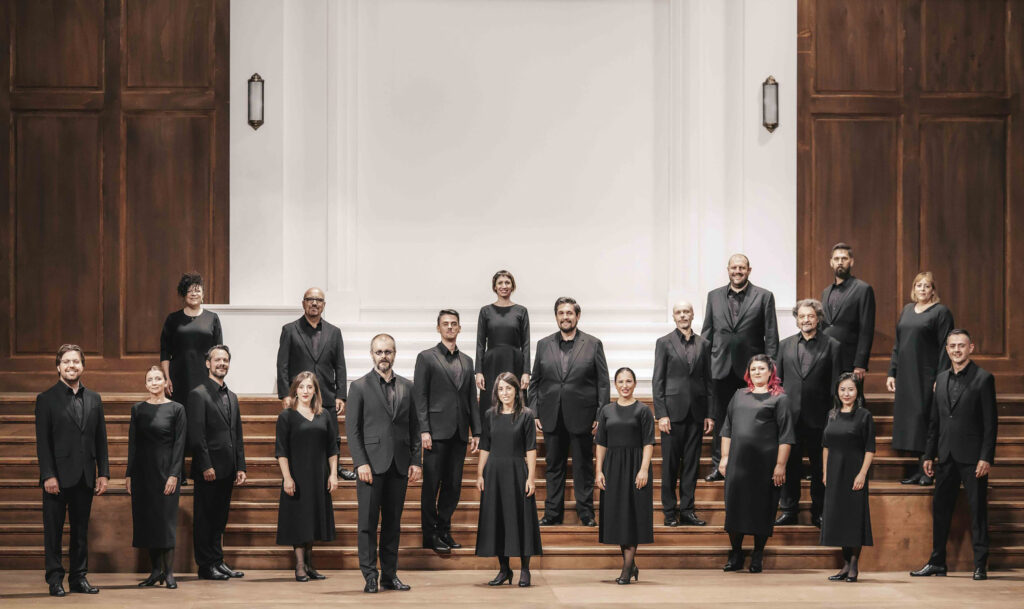
Il Canto di Orfeo © Marco Borelli
In a choir concert titled Mantovani & Monteverdi, Gianluca Capuano leads Les Musiciens du Prince – Monaco – and Il Canto di Orfeo (Choirmaster Jacopo Facchini) in the world premiere of Festival Director Bruno Mantovani’s Venezianischer Morgen, commissioned by Monte-Carlo Opera. Also on the programme is Monteverdi’s Vespro della Beata Vergine, SV 206.
There are three different screenings at the Cinéma des Beaux-Arts – all of which are devoted to the memory of Pierre Boulez. The first, Boulez XXe, features two documentaries, Rythme and Harmonie, both broadcast by France 3 in August 1988, and both written and directed by Nat Lilenstein. The second is a documentary by Andy Sommer with the title Une leçon de Pierre Boulez, sur Incises, and the third is a filmed opera, Leoš Janáček’s From the House of the Dead. This staging, by Patrice Chéreau, is led by Pierre Boulez, and was made during the 2007 Festival d’Aix-en-Provence – a classic match of music and theatre.
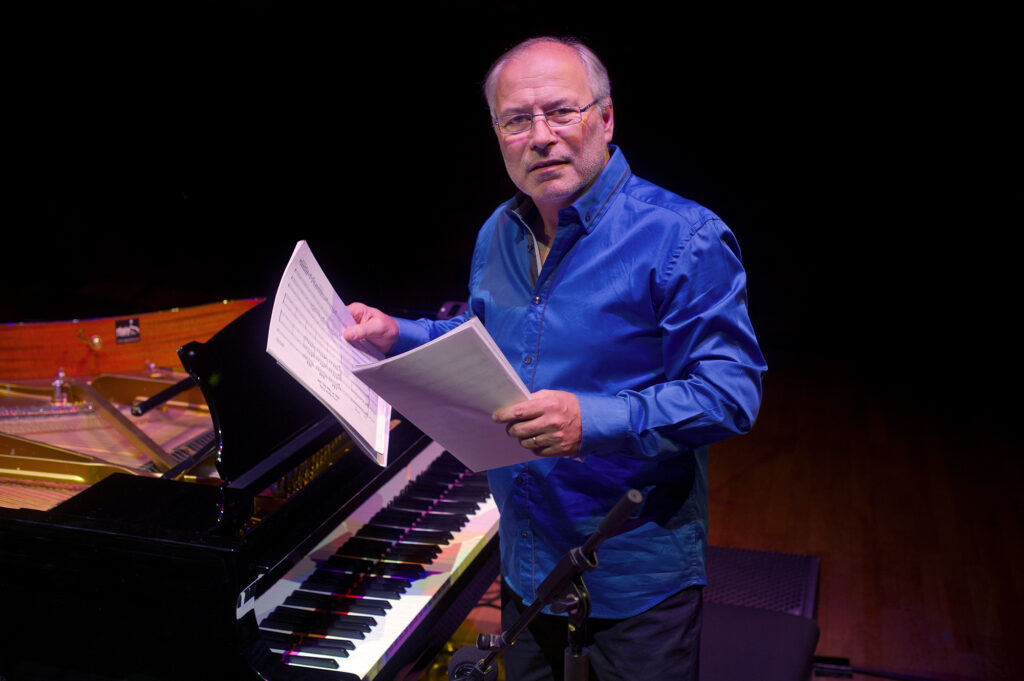
Hervé Sellin © Jean-Baptiste Millot
Jazz makes a welcome appearance at the festival, courtesy of pianist Hervé Sellin. In the first of two concerts, he performs with trumpeter Claude Egéa, and pianists Ruben Orsini, Maya Sardi and Matisse Jones – the pianists all being students of the Académie Rainier III. The quintet plays a selection of pieces after works by Claude Debussy and Maurice Ravel, such as Clair de lune, the Prélude à l’après-midi d’un faune, Le jardin féerique and Pavane pour une infante défunte.
The second concert features the Hervé Sellin Tentet playing their album Marciac New-York Express, which contrasts the dynamism and modernity of New York with the peaceful landscapes of the Gers countryside. The performance also includes an original creation inspired by Pierre Boulez, and offered to Printemps des Arts.
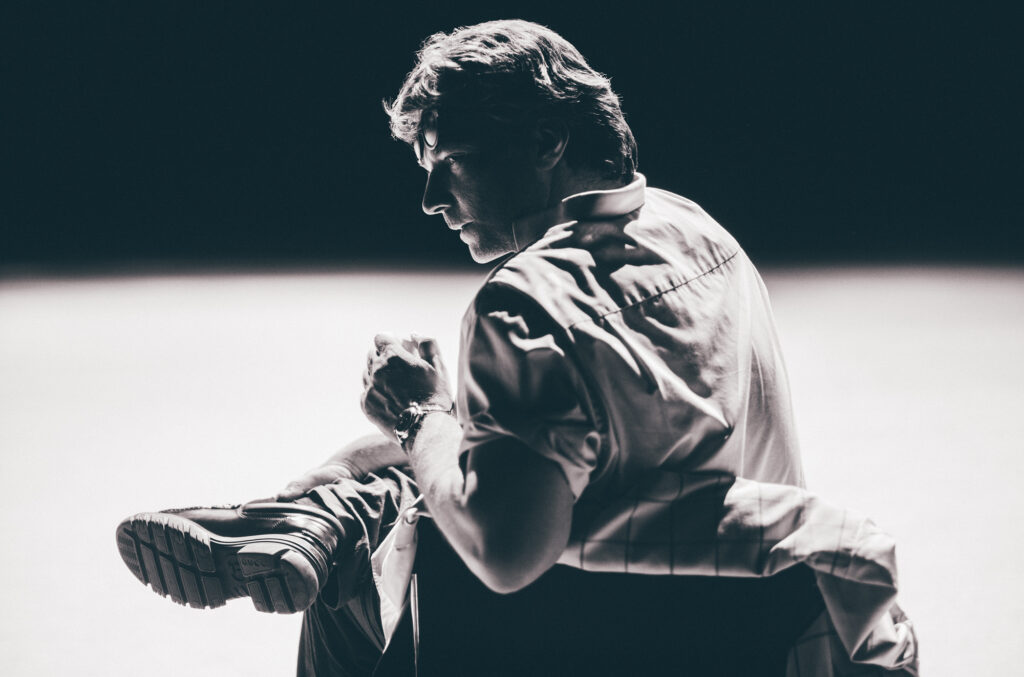
Choreographer Marco Goecke © Rezi Rezvani
Finally, the festival presents an evening of ballet, with Les Ballets de Monte-Carlo, pianist David Bismuth, and the Monte-Carlo Philharmonic Orchestra, conducted by Jesko Sirvend, winner of the 2022 Yevgeny Svetlanov Conducting Competition in Monaco. They perform three works, the first of which is George Balanchine’s The Four Temperaments, set to the music of Paul Hindemith. This is followed by Alexei Ratmansky’s Wartime Elegy, featuring traditional Ukrainian music by Pidkamecka Kolomyjka and Nina Polka, and Four Postludes (for Piano and String Orchestra) by Ukranian composer Valentin Silvestrov. The programme ends with Marco Goecke’s Transfigured Night, with a score by Arnold Schoenberg.
The Festival Printemps des Arts de Monte-Carlo takes place from 2nd March to 27th April, 2025. Further information on the full programme of events, and details of ticketing, are available on the Printemps website.
Information sourced from:
Printemps des Arts de Monte-Carlo programme notes
Pierre Boulez
Artists’ websites
This article first appeared in Riviera Buzz

Leave a Reply